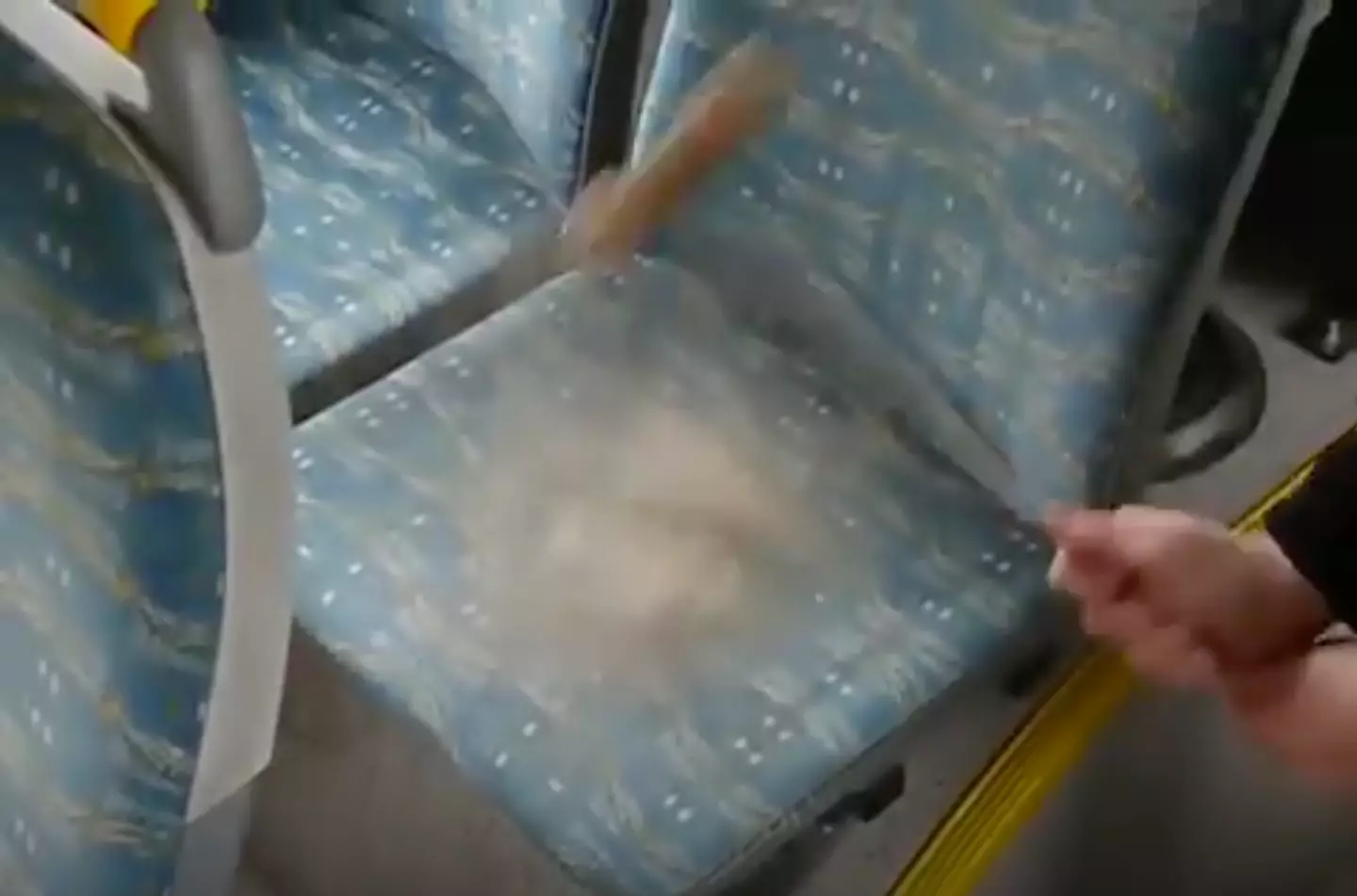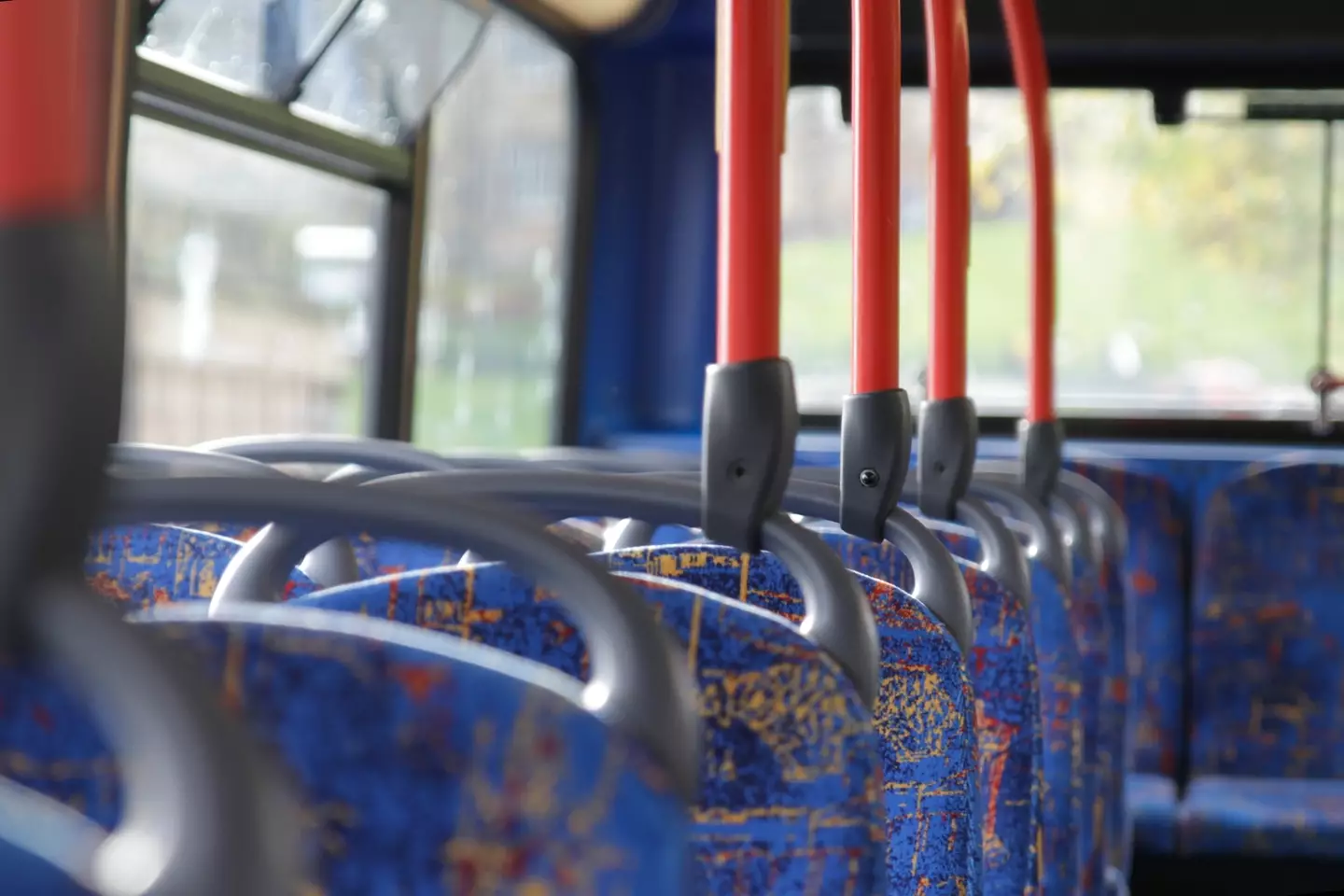If there’s one standout feature of using public transport – and no, not a stranger inadvertently coughing on you – it’s their uniquely designed seat patterns.
There’s a pretty high chance that you’ve never thought about why that is, maybe it’s a thing that all the bus/train/tram designers seem to prefer.
But why would they like these hideous, ugly designs?
It turns out that it’s not a case of liking the designs, as a viral video on social media has explained exactly why they look like that, using a bus seat in Poland as an example.
Have a look:
But you’re probably thinking, what does this have to do with patterns on a bus seat?
This is in the top tier of useless knowledge, unless you’re an avid pub quiz attendee.
It is also worth noting that horrid fashion and design ideas came from the 1980s, so you might believe that these ideas originated from this weird and colourful time in human history.
But here you go, the main reason that seats are designed with these mind-numbing patterns are to hide how gross they really are.
That doesn’t make any sense, right? Give us a moment.
Bus seats are ugly because they’re designed in such a way, using complex, mind-altering algorithms, so that our eyes are distracted from all the actual muck and grime that can be found on them.

YouTube/KubulMKM
To the commuter’s eye, it almost always seems relatively clean, when in actual fact, there is all kinds of dirt and grime on there that we would only be able to see if the seat fabrics were plain.
It’s an illusion, basically, because we absolutely dread to think what kinds of things are on there while you’re on your travels.
The BBC also reported that this is one of the key reasons – but also explained that there are several others, too.
First up, there’s the fabric to consider.
“Transport for London has historically adopted a wool moquette fabric,” Harriet Wallace-Jones, co-founder of Wallace Sewell – the UK-based design studio that’s designed fabrics for TFL – told the BBC in 2018.
“Wool is naturally flame retardant, and moquette is a pile fabric which has more durability than a flat woven cloth. The fabric is usually a mix of cut and uncut pile, which also makes it more durable.”
The London Transport Museum also backs this up, writing on their website: “Moquette was chosen for public transport for two reasons.

Getty Stock Images
“First, because it is hard wearing and durable. Second, because its colour and patterns disguise signs of dirt, wear and tear.
“On top of this moquette had the advantage of being easy and cheap to mass-produce.”
There’s also the problem that fashions and trends often pass pretty quickly, so if you go for something that looks great at the time, chances are it’ll look naff within months.
Thankfully, someone’s managed to see the beauty in all of it, having chosen to craft some unique trainers from some upcycled bus seat fabric.
The distinctive shoes were a publicity stunt by First Buses in Ashton, Tameside, as the latest step in the firm’s green policy, Manchester Evening News reported.
Aimed as an interesting way of using up old materials no longer needed, the shoes – which were designed by recycling company Above and Beyond – were not only made using fabric from bus seats, but also the rubber from the tyres of disused buses.